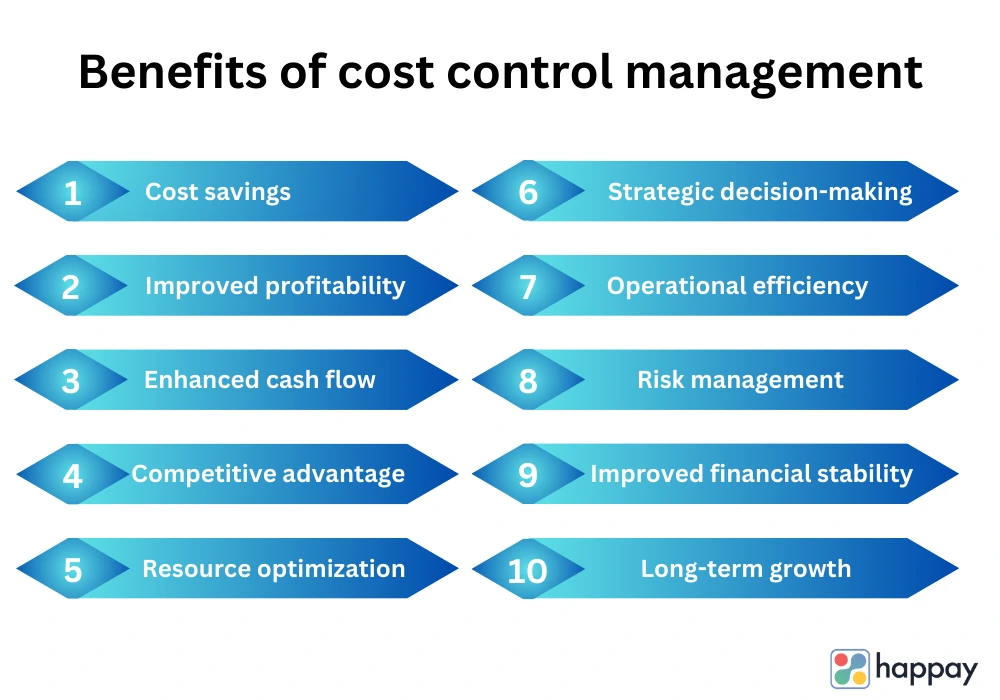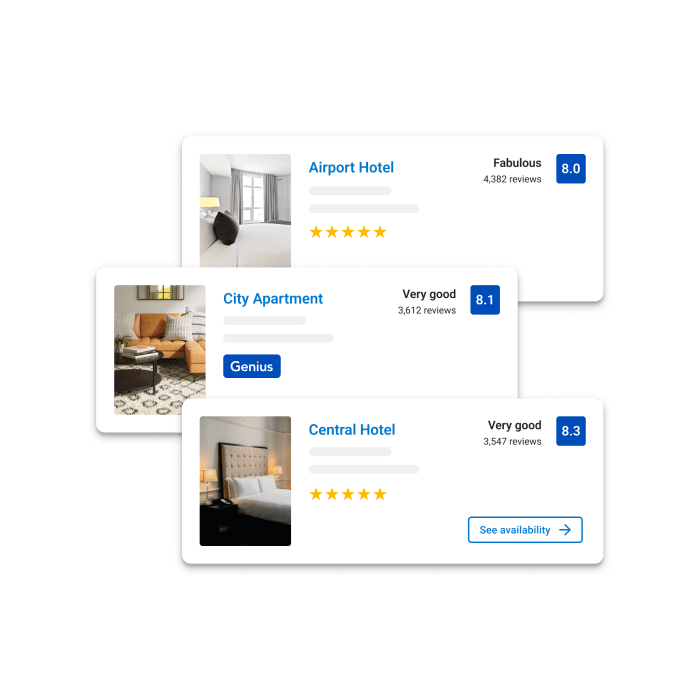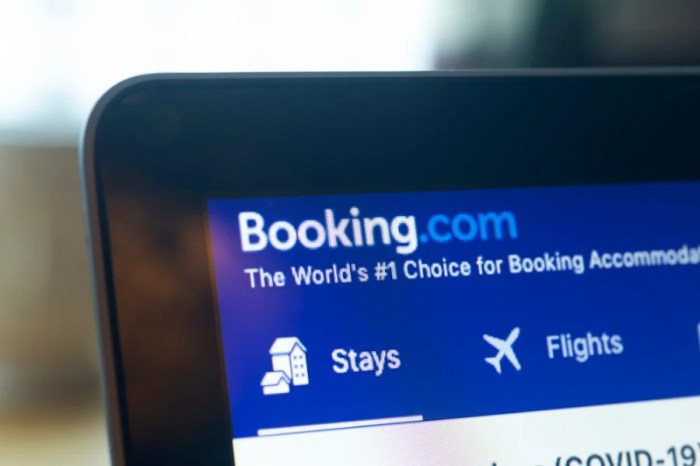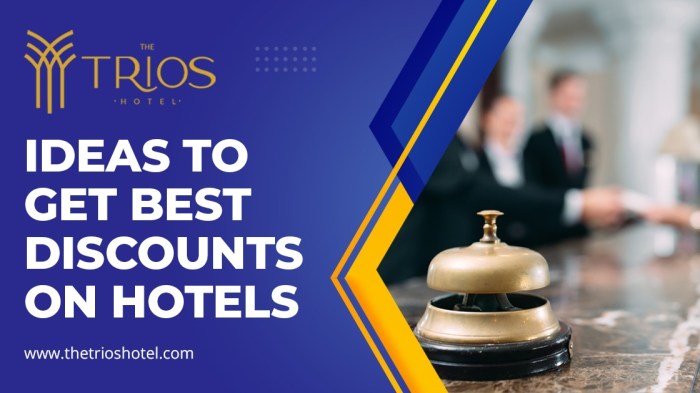Corporate Hotel Booking Strategies & Trends
Corporate hotel booking is crucial for businesses, enabling seamless employee travel arrangements. This involves understanding the distinct needs of corporate travelers compared to leisure travelers, optimizing technology for efficient bookings, and implementing strategies to enhance the overall experience. Effective communication, cost management, and adapting to emerging trends are all vital components of a successful corporate hotel booking program.
Various technologies streamline the process, from online portals to travel management companies (TMCs), allowing businesses to negotiate favorable rates and track expenses effectively. Understanding corporate travel policies and preferences is paramount for personalization and building lasting relationships with clients. This comprehensive guide will explore these elements and provide valuable insights into optimizing your corporate travel program.
Introduction to Corporate Hotel Booking

Corporate hotel booking encompasses the process of reserving hotel accommodations for business purposes. This typically involves companies securing rooms for their employees on business trips, conferences, or other corporate events. It often involves negotiated rates, volume discounts, and specialized services tailored to the needs of the traveling workforce.
Corporate bookings differ significantly from leisure bookings in terms of motivations, preferences, and expectations. Businesses prioritize cost-effectiveness, convenient locations, and amenities that support productivity. Individual travelers, on the other hand, often focus on experiences and personal preferences, potentially sacrificing some cost savings for comfort and leisure.
Key Characteristics of Corporate Bookings
Corporate travelers are often motivated by factors like cost reduction, maximizing productivity during travel, and ensuring employee well-being during business trips. Their needs frequently center around convenient locations near meeting venues, efficient communication channels, and business-friendly amenities such as high-speed internet and meeting rooms.
Pain Points in Managing Corporate Bookings
Businesses frequently encounter challenges in managing corporate hotel bookings. These include difficulties in consolidating reservations from various locations, tracking expenses, and ensuring compliance with company policies. Maintaining consistent communication with travelers regarding their accommodations is also a crucial aspect.
Comparison of Corporate and Leisure Travelers
The following table highlights key differences in expectations between corporate and leisure travelers:
| Feature | Corporate Traveler | Leisure Traveler |
|---|---|---|
| Booking Preferences | Online portals, bulk discounts, pre-negotiated rates | Online portals, spontaneity, and flexible booking options |
| Key Considerations | Cost-effectiveness, location (proximity to work), amenities (meeting rooms, high-speed internet) | Amenities (pool, spa), location (attractions, scenery), price (per night) |
| Travel Frequency | Frequent, often recurring | Occasionally, less predictable |
The Role of Technology in Corporate Hotel Bookings

Technology has revolutionized the corporate hotel booking process, streamlining operations and enhancing the overall experience for businesses. Modern tools provide greater efficiency, cost savings, and improved control over travel expenses. This transformation is driven by the need for businesses to optimize travel budgets and ensure smooth, predictable travel arrangements for their employees.
The integration of various technologies has significantly impacted how businesses manage their hotel bookings. From online platforms to sophisticated travel management companies (TMCs), these tools provide a comprehensive suite of functionalities, enabling companies to effectively manage their travel programs.
Online Booking Platforms
Online booking platforms have become an essential part of the corporate travel landscape. These platforms offer businesses a centralized hub for managing reservations, tracking expenses, and analyzing travel data. Their user-friendly interfaces and robust functionalities make them a popular choice for businesses of all sizes. A wide array of online platforms caters to different needs and budgets, with some offering additional features like real-time availability checks, automated email confirmations, and secure payment processing. Businesses can often leverage these platforms to negotiate special corporate rates, further reducing costs.
Travel Management Companies (TMCs)
Travel Management Companies (TMCs) offer a more comprehensive approach to corporate travel management. They often have established relationships with hotels and other travel providers, allowing them to secure favorable rates and negotiate discounts. TMCs provide tools for managing itineraries, tracking expenses, and generating reports on travel spending. Their services extend beyond hotel bookings to encompass other aspects of travel, including flights, ground transportation, and even event planning. This comprehensive approach can significantly reduce administrative burden for companies, allowing their travel managers to focus on other strategic tasks.
Hotel Booking Software
Dedicated hotel booking software for corporate travel management provides advanced features tailored to the specific needs of businesses. These solutions typically include tools for creating and managing employee travel policies, automating booking processes, and integrating with existing financial systems. Software solutions like Concur, Travelport, and other specialized platforms are examples of this category. Their sophisticated reporting capabilities allow businesses to gain detailed insights into travel spending, identify areas for optimization, and ensure compliance with corporate policies.
Comparison of Booking Technologies
| Technology | Benefits | Drawbacks |
|---|---|---|
| Online Booking Portals | Ease of use, cost-effectiveness, 24/7 availability, typically lower costs, and greater transparency | Potential for errors, lack of personal service, and may lack advanced features for complex travel needs. |
| Travel Management Companies (TMCs) | Comprehensive travel management, negotiated rates, reporting tools, and often provide specialized expertise in travel management, access to a vast network of providers. | Potential cost, limited flexibility, may require a contract commitment. |
Strategies for Enhancing Corporate Hotel Booking Experiences
Optimizing the corporate hotel booking process is crucial for fostering positive relationships with business clients and driving repeat bookings. A streamlined and personalized experience can significantly impact a company’s reputation and profitability within the corporate travel sector. By implementing effective strategies, hotels can enhance the entire booking journey, from initial inquiry to post-stay feedback.
Effective corporate hotel booking strategies are paramount to meeting the specific needs and preferences of business travelers. This involves not only streamlining the booking process itself but also tailoring the experience to reflect the unique requirements of corporate clients.
Improving the Corporate Booking Process
Streamlining the corporate booking process is essential for efficiency and a positive user experience. Implementing a dedicated online portal for corporate clients allows for self-service bookings, reducing administrative burden on both the hotel and the client. This portal should feature intuitive navigation, clear communication channels, and secure payment options. Integrating with existing corporate travel management systems (TMS) is crucial for seamless data transfer and reduced manual effort.
Personalizing the Corporate Travel Experience
Personalization is key to enhancing the corporate travel experience. Collecting and utilizing data on past travel preferences, frequent traveler programs, and preferred amenities allows for tailored recommendations. This could include offering preferred room types, pre-arranged meeting spaces, and preferred dining options. For example, a hotel could recognize a frequent traveler and pre-arrange their room based on their preferences, ensuring a familiar and comfortable stay.
Efficient Communication and Customer Service in Corporate Bookings
Effective communication and responsive customer service are critical components of a positive corporate booking experience. Establishing clear communication channels, such as dedicated phone lines, email addresses, or online chat support, allows for prompt responses to inquiries and concerns. A dedicated account manager for each corporate client can further streamline communication and provide personalized support. Providing clear and concise confirmation emails, outlining important details such as room assignments, meeting room reservations, and special requests, is crucial. Proactive communication about potential disruptions or changes is equally important.
Understanding Corporate Travel Policies and Preferences
Understanding and adhering to corporate travel policies and preferences is vital. This includes policies on room types, amenities, meal arrangements, and preferred payment methods. Hotels should actively seek to understand and document these policies for each corporate client. Utilizing a centralized database for storing this information ensures consistent application and avoids errors.
Building Trust and Loyalty with Corporate Clients
Building trust and loyalty with corporate clients requires consistent, high-quality service and attention to detail. This includes exceeding expectations in terms of room cleanliness, service quality, and responsiveness to requests. Implementing feedback mechanisms, such as online surveys or direct communication channels, allows hotels to gather insights and continuously improve the experience. Offering exclusive benefits, such as discounted rates or priority access, can further strengthen relationships.
Integrating Corporate Booking Systems with Existing Business Platforms
Integrating corporate booking systems with existing business platforms is critical for seamless operation. This integration can streamline the entire process from initial inquiry to payment and post-stay feedback. Hotels should aim for compatibility with common corporate travel management systems (TMS) to reduce manual data entry and ensure accurate information flow. This allows for automated updates on room assignments, payment processing, and reporting. Furthermore, integrating with corporate expense reporting tools will ensure transparency and efficiency in the entire travel process.
Examples of Effective Communication Strategies for Corporate Clients
Effective communication strategies should focus on clarity, promptness, and personalized attention. Providing clear and concise confirmation emails, outlining key details such as room assignments, special requests, and any relevant information, is essential. Utilizing a dedicated account manager for each corporate client allows for personalized support and proactive communication. Proactive communication regarding potential disruptions or changes, such as unexpected weather conditions or maintenance schedules, can significantly improve the client experience.
Financial Implications and Cost Management

Optimizing corporate hotel bookings goes beyond simply securing rooms; it’s about strategic cost management. Understanding the financial implications and implementing effective cost-saving strategies are crucial for maximizing return on investment in travel expenditures. This section delves into the various methods businesses can employ to reduce costs while ensuring a positive experience for travelers.
Cost-Saving Strategies in Corporate Hotel Bookings
Effective cost management in corporate hotel bookings requires a multi-faceted approach. This involves identifying opportunities for negotiation, leveraging technology, and implementing clear corporate travel policies. A well-defined strategy can significantly reduce expenses associated with travel, freeing up resources for other business needs.
- Bulk Booking: Negotiating group rates for large bookings often results in substantial discounts compared to individual bookings. This strategy is highly effective for frequent travelers and events. For example, a company booking 50 rooms for a conference could potentially secure a significantly lower rate than booking 50 rooms individually.
- Loyalty Programs: Many hotels offer discounted rates and exclusive benefits to members of their loyalty programs. Enrolling in these programs can yield significant savings over time, especially for companies with frequent travel needs. Consider the potential for earning points or upgrades that can translate into future cost reductions.
- Travel Policy Management: Clear and well-defined travel policies are essential for managing costs effectively. These policies should Artikel acceptable lodging choices, preferred hotel chains, and guidelines for booking processes. Policies also help to maintain consistent booking practices, making expense tracking and analysis more straightforward. For instance, policies could mandate booking through a designated travel agency to ensure compliance with company travel regulations and negotiate group rates.
Negotiating Better Rates with Hotels, Corporate hotel booking
Successful negotiation involves understanding hotel pricing structures and proactively seeking discounts. Companies can leverage their volume of bookings to secure favorable rates.
- Understanding Hotel Pricing: Researching hotel pricing models, including seasonal variations and demand fluctuations, helps in strategically timing bookings. Knowing these factors allows companies to book rooms during periods of lower demand to secure better rates.
- Building Relationships: Cultivating relationships with hotel representatives can yield valuable insights into pricing strategies and potential discounts. These relationships can lead to personalized rate negotiations tailored to the company’s needs.
- Using Online Booking Platforms: Leveraging online booking platforms and comparison tools can help identify the most competitive rates. Companies can utilize these tools to compare prices across different hotels and booking channels to ensure they’re getting the best possible deal.
The Role of Corporate Travel Policies in Cost Management
Corporate travel policies are essential for controlling expenses and ensuring compliance. These policies act as a framework for booking decisions and expense reporting.
- Defining Acceptable Lodging: Establishing clear guidelines on acceptable lodging options (e.g., specific hotel chains or star ratings) helps maintain consistent standards and reduce costs by limiting choices.
- Establishing Booking Procedures: Creating standardized booking procedures, such as using a designated travel agency or booking platform, streamlines the process and ensures compliance with company policies.
- Setting Budget Limits: Establishing clear budget limits for travel expenses ensures that costs remain within defined parameters. This helps to prevent overspending and promotes responsible travel.
Tracking and Analyzing Corporate Travel Expenses
Effective expense tracking and analysis are vital for identifying cost-saving opportunities and ensuring compliance. This involves using various tools and technologies.
- Expense Reporting Systems: Utilizing automated expense reporting systems allows for streamlined data collection, analysis, and reporting of travel costs. These systems can track expenses and categorize them for detailed analysis, identifying patterns and trends.
- Data Visualization Tools: Employing data visualization tools allows for a clear and comprehensive overview of travel expenses. These tools help identify areas for potential cost reduction and provide insights into trends and patterns in spending.
- Reporting and Analysis: Regular reporting and analysis of travel expenses allow for the identification of areas where costs can be reduced and optimized. By tracking and analyzing historical data, companies can predict future costs and develop strategies for improvement.
Potential Cost Savings by Booking Strategy
| Strategy | Potential Savings | Implementation |
|---|---|---|
| Bulk Booking | Significant savings on negotiated rates, potentially 10-30% or more | Requires planning and negotiation |
| Loyalty Programs | Discounted rates and exclusive benefits, potentially 5-15% | Requires program enrollment and active participation |
| Travel Policy Management | Improved cost control and accountability, potentially 5-10% | Requires clear guidelines and consistent adherence |
Case Studies of Successful Corporate Hotel Bookings
Examining successful corporate hotel booking strategies provides valuable insights into optimizing processes and enhancing customer experiences. These strategies, often tailored to specific business needs, can significantly impact profitability and brand loyalty. Analyzing successful implementations allows for replication and adaptation within other organizations.
Examples of Successful Corporate Hotel Booking Strategies
Various strategies have proven effective in the corporate hotel booking sector. These include implementing centralized booking platforms, negotiating favorable rates with hotels, and leveraging technology for streamlined workflows. Strategic partnerships with preferred hotels can offer exclusive benefits to corporate clients.
- Centralized Booking Platforms: Companies like Acme Corporation have successfully centralized their hotel bookings through a dedicated platform. This centralized system facilitated streamlined communication, consistent reporting, and accurate expense tracking. Improved visibility across all bookings allowed for efficient management and reduced administrative overhead.
- Negotiated Rates and Partnerships: Another successful approach is demonstrated by Beta Industries, which achieved significant cost savings by negotiating favorable rates with hotels. Strategic partnerships with preferred hotels often provided exclusive amenities and services to Beta’s employees, reinforcing their loyalty and boosting their corporate image. These negotiated rates, combined with the use of preferred hotel lists, provided Beta Industries with considerable financial advantages.
- Technology-Driven Optimization: Gamma Solutions, a consulting firm, utilized advanced booking software to automate processes and streamline the entire booking workflow. Automated reminders, real-time confirmations, and intuitive reporting tools enhanced the efficiency of the booking process. This approach allowed Gamma to significantly reduce errors and improve overall booking experiences.
Factors Contributing to Success
Several factors have consistently contributed to the success of these strategies. A key element is the alignment of the booking strategy with the company’s overall travel policy. Effective communication and training of staff involved in the process are also crucial. Finally, a clear understanding of employee needs and preferences often drives successful outcomes.
Key Takeaways from Case Studies
Several crucial takeaways emerge from the successful case studies. Centralization of bookings fosters efficiency, while negotiated rates provide substantial cost savings. Technological integration can dramatically streamline the process. Understanding the value of tailored solutions for corporate travel needs is essential for achieving success. Customer satisfaction is significantly improved when businesses align their booking systems with their employees.
Application of Examples to Other Businesses
These successful corporate booking strategies can be adapted and applied to other businesses. Centralized platforms are easily implemented across various industries. Negotiated rates can be explored with preferred suppliers, and technology can be leveraged to enhance the booking experience. Understanding the unique needs of the company’s clientele is vital for tailoring effective booking strategies.
Overview of Different Successful Corporate Booking Strategies
Various successful corporate booking strategies demonstrate a common thread: a tailored approach. Centralized booking systems, strategic partnerships, and technology integration are key components of effective corporate travel management. Companies that prioritize these factors tend to achieve substantial improvements in cost savings, employee satisfaction, and operational efficiency.
Future Trends in Corporate Hotel Bookings

Source: booking.com
The corporate travel landscape is undergoing a rapid transformation, driven by evolving business needs and technological advancements. Predicting precise future scenarios is challenging, but identifying key trends allows businesses to proactively adapt and optimize their travel programs. This section examines emerging patterns, their impact on the travel experience, and how businesses can prepare for the future of corporate travel.
Emerging Trends in Corporate Hotel Bookings
Several key trends are shaping the corporate hotel booking landscape. These include a growing emphasis on sustainability, personalized experiences, and the increasing integration of technology into every stage of the booking process. These trends reflect evolving employee expectations and a broader societal shift towards environmentally conscious practices.
Impact on the Travel Experience
These emerging trends are profoundly impacting the corporate travel experience. Emphasis on sustainability influences the selection of eco-friendly hotels, leading to a more conscientious approach to travel choices. Personalized experiences, often driven by data analytics, allow for tailored recommendations and preferences, creating a more customized and efficient travel process. Furthermore, seamless technology integration streamlines booking, payment, and communication, leading to a more efficient and less stressful experience for travelers.
Potential Impact on Future Business Travel
The evolution of corporate hotel bookings will significantly affect future business travel. Increased demand for sustainability will drive a shift towards environmentally responsible accommodations and travel practices. Personalized experiences will lead to a greater emphasis on individual traveler needs and preferences, potentially impacting company travel policies. Advancements in technology will likely automate many aspects of travel, from booking to expense reporting, enhancing efficiency and cost-effectiveness. For example, AI-powered travel assistants can significantly streamline the entire booking process, from finding the best deals to managing travel expenses.
Adapting to Change for Businesses
To effectively adapt to these changes, businesses must proactively address these emerging trends. This involves implementing sustainable travel policies, investing in personalized travel management tools, and embracing technology solutions that improve efficiency and cost management. A good example is companies incorporating sustainability scores into their hotel selection criteria, incentivizing employees to choose eco-friendly options.
Technologies Reshaping the Future of Corporate Travel
Several key technologies will be instrumental in reshaping the future of corporate travel. These include AI-powered travel assistants, integrated expense management platforms, and dynamic pricing algorithms. These technologies are crucial for optimizing travel budgets, personalizing the travel experience, and enhancing the overall efficiency of the corporate travel program.
- AI-Powered Travel Assistants: These assistants can proactively identify optimal travel options, factoring in preferences, budget, and environmental considerations. They streamline the booking process and reduce manual effort, improving overall efficiency.
- Integrated Expense Management Platforms: These platforms will integrate seamlessly with booking systems, automatically capturing travel expenses and streamlining the reimbursement process. This improves accuracy and reduces administrative burden.
- Dynamic Pricing Algorithms: These algorithms allow for real-time adjustments to hotel rates, ensuring companies secure the most favorable deal, based on factors such as demand and seasonality.
Concluding Remarks
In conclusion, corporate hotel booking demands a strategic approach that considers diverse traveler needs, technological advancements, and financial implications. Successful strategies often hinge on understanding the nuances of corporate travel, from personalized experiences to cost-effective solutions. By integrating technology, understanding policies, and implementing effective communication, businesses can enhance the corporate travel experience while optimizing financial outcomes. Future trends indicate a continued evolution in this space, requiring adaptability and innovation to maintain a competitive edge.





